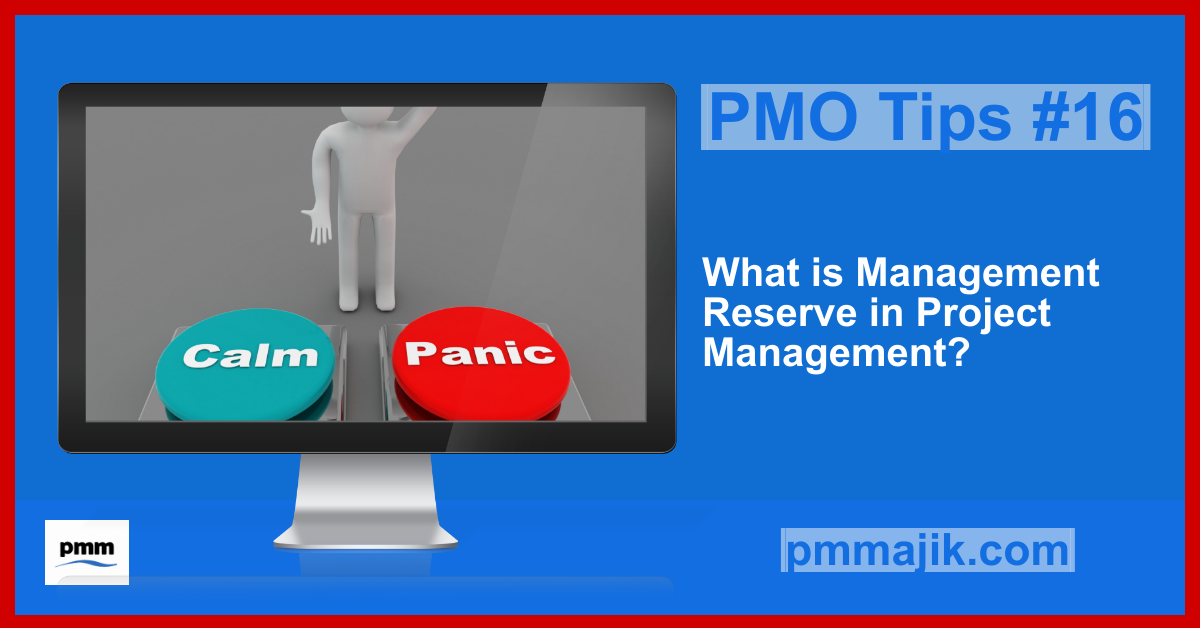A management reserve is a supplementary budgetary allocation retained by the management team for unanticipated risks, uncertainties, and changes that might occur during the project’s execution. It serves as a backup or contingency plan to deal with unforeseen circumstances without jeopardizing the project’s progress or objectives. In this post, we will examine the best time to use and manage reserves. Also, we will look at how you can use different management reserve practices.
Best Time to use Management Reserves
In project management, Management Reserves are there to act as a safety net and guarantee that the project has the resources it needs to respond to unforeseen occurrences efficiently. The best time to dip into the Management Reserves includes:
1. Mitigating Project Risks
Management Reserves are very useful in reducing risks when the project team finds possible risks that can potentially affect the project’s schedule, scope, or budget. This includes hazards associated with resource shortages, technological difficulties, governmental policy changes, and supplier delays.
2. Responding to Unexpected Events
Management reserves come in handy when unexpected circumstances arise during the project. These occurrences might be unanticipated technical interruptions, political unrest, economic volatility, or natural disasters not foreseen during the project development.
3. Managing Scope Changes
Due to customer requests, market pressures, or internal choices, projects often experience scope adjustments. Management Reserves help to make these adjustments without impacting the project’s total budget if they are deemed fair and in line with the project’s goals.
4. Addressing Scope Creep
Scope creep is the unplanned, unrestricted development of a project’s scope beyond its initial parameters. The team can use Management Reserves to manage the extra work without having an effect on the base budget if scope creep happens and is determined to be necessary for the project’s success.
5. Overcoming Budget Variances
Budget deviations may happen throughout a project due to unanticipated costs or cost overruns. Management reserves can cover these variations, keeping the project’s finances on track.
6. Accommodating Changes in Regulations
Management Reserves are very useful in making the required modifications. Also, it guarantees conformity to new standards if abrupt changes in rules, laws, or compliance requirements impact the project.
7. Seizing Opportunities
Occasionally, unanticipated possibilities present throughout a project that might improve its results or add value. Management reserves assist in taking advantage of such possibilities and generate extra advantages.
8. Adapting to Changes in Market Conditions
During the project’s execution, market circumstances might change, which could impact price or resource availability. To adjust to these shifting circumstances without impeding the execution of the project, one might need to tap into the Management Reserves.
Effective Management Reserve Practices
The proper deployment of the Management Reserve depends on effective management. Here are a few management reserves recommended practices:
1. Transparency and Documentation
Ensure that the management reserve allocation procedure is well documented and that all parties know its existence and intent. The project team and stakeholders benefit from open and honest communication on the Management Reserve.
2. Regular Review and Update
Keep an eye on the project’s development and evaluate the risks often to ensure the Management Reserve allotted aligns with the changing project environment. A reserve amount may need to be adjusted due to prospective risks and opportunities identified via regular evaluations.
3. Change Control Process
Implement a strong change control mechanism to assess and approve modifications to the project scope. Ensure any project budget and schedule changes are properly handled using the Management Reserve.
4. Risk Management Plan
The team needs to come up with a thorough risk management strategy that includes approaches to dealing with different risks and uncertainties. The risk management strategy should include clear steps for accessing and utilizing the Management Reserve.
Conclusion
The Management Reserve is an essential part of project management that equips managers to handle risks and uncertainties successfully. Projects can keep moving forward and remain on schedule despite unforeseen obstacles by having a contingency fund ready. A well-managed Management Reserve is a crucial tool for every successful project manager since it increases the likelihood that the project will succeed.






